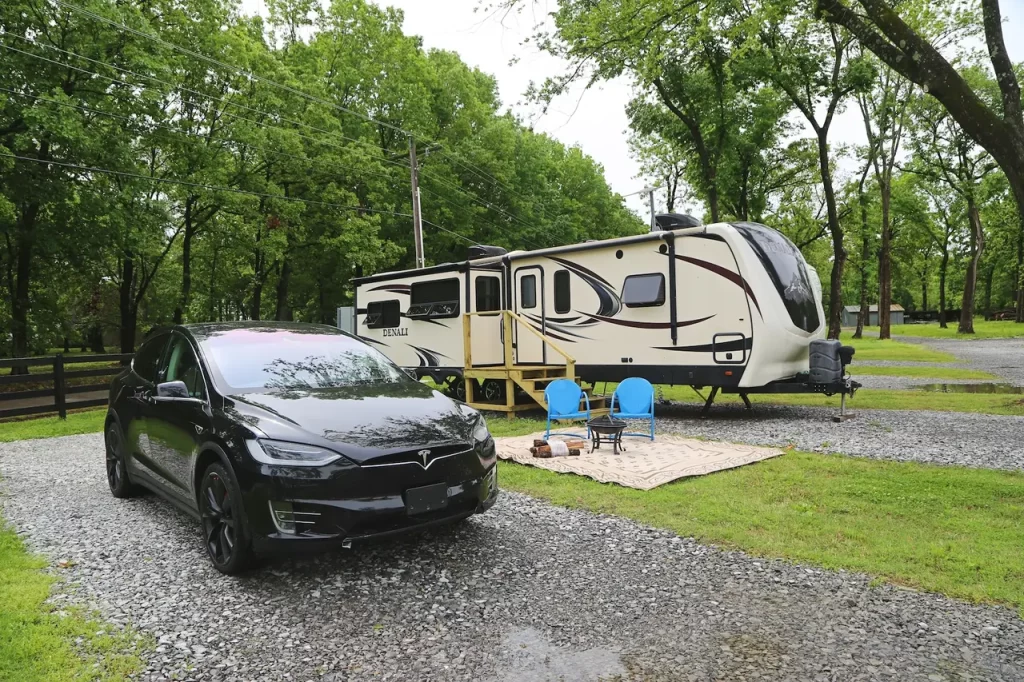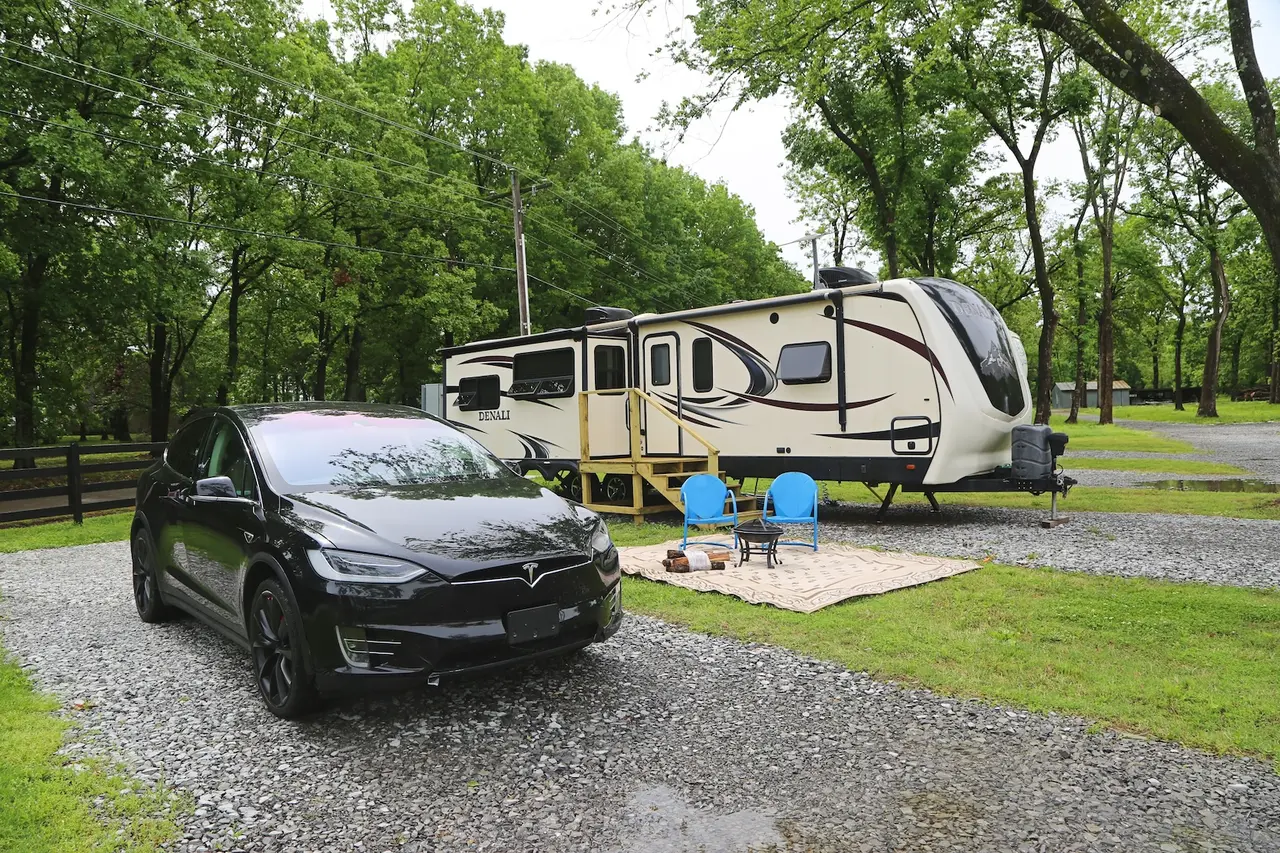
Why Having a Full Hook-up, equipped with 50-30-20 amp Power at Each Camping Site is Important
Introduction to Full Hook-up Camping Sites
When you set off on a camping adventure, knowing you’ve got a full hook-up site changes the game. It means you’re not just camping; you’re bringing a piece of home comfort with you into the great outdoors. Full hook-up sites offer connections for electricity, water, and sewer right at your camping spot. Imagine not having to worry about running out of water, searching for public restrooms, or dealing with your RV’s waste tanks during your stay. That’s the convenience we’re talking about. And when it comes to power, these sites usually come equipped with 50-30-20 amp options. This flexibility allows a wide range of RVs and campers to connect, regardless of their power needs. Whether you’re in a large motorhome that requires substantial power or a small travel trailer, a full hook-up site has you covered. This setup isn’t just about luxury; it’s about making camping accessible and enjoyable for everyone. In simple terms, it means more time exploring and less time managing basic needs.
Understanding 50-30-20 Amp Power Options
When you’re setting up camp, knowing your power options—50, 30, and 20 amp—is crucial for a smooth experience. Think of these numbers as different sizes of hoses; the bigger the number, the more power it can handle. Most RVs need a 30 or 50 amp connection to power everything inside, from the air conditioner to the microwave. The 20 amp plug is similar to what you have at home and works for smaller gadgets or charging a laptop. Here’s why getting them right matters: A 50 amp service can power multiple big appliances at once without a sweat, making it perfect for larger RVs or trailers with families. A 30 amp service is common for mid-sized RVs. It handles less than a 50 amp but is enough for essential comforts while on the road. The 20 amp is your everyday power source for charging phones or using small devices. Think of your campsite’s power hook-up as a customizable power supply. Whether you’re in a big rig needing 50 amps or a small van with less power demand, choosing the right amp hookup ensures you’ve got the juice for a comfortable stay. Plus, using the correct amp rating helps avoid electrical issues, keeping your trip safe and enjoyable.
The Importance of Versatile Power Supply for Campers
When you’re out camping, having access to a versatile power supply like a full hook-up with 50-30-20 amp outlets at each site is more than just convenient—it’s essential. Here’s why. First, it’s about comfort. Whether you’re in an RV or tent camping, being able to power your fridge, charge your gadgets, or run a small heater makes the experience way better. Next, it’s about possibility. With this kind of setup, you don’t have to pick between charging your phone or keeping the lights on. You can do both and more. It suits all kinds of campers, from those in big RVs that need a lot of power to those in small trailers with modest needs. And it’s not just about the here and now. This readiness for any electric need is future-proofing your campsite. As more gadgets become part of our outdoor adventures, having flexible power options will only get more important. Plus, it makes your campsite appealing to a broader range of campers, ensuring everyone can get the most out of their stay. So, a versatile power supply isn’t just about convenience; it’s about elevating the camping experience for everyone.
How Proper Electrical Hook-ups Enhance Your Camping Experience
Let’s cut to the chase. Proper electrical hook-ups at a camping site can seriously upgrade your outdoor adventure. Imagine arriving at your campsite, and you’ve got the power to run your RV’s air conditioning, fridge, and even charge your gadgets. That’s what 50-30-20 amp hook-ups offer. Each amp rating caters to different power needs, ensuring that no matter your RV’s requirements, you’re covered. With a full hook-up, you’re not just camping; you’re bringing the comfort of your home outdoors. No more worrying about your phone dying or being unable to prepare a hot meal. It’s all about convenience, comfort, and enjoying nature without sacrificing the luxuries you’re accustomed to. Plus, it’s a game-changer for longer stays. You’re all set for a stress-free, enjoyable camping experience with the right power access.
Safety Considerations with Electrical Hook-ups at Campsites
When hooking up at a campsite, remembering safety with electrical connections is crucial. A full hook-up with 50-30-20 amp options ensures you’re powered up without overloading the system. Overloading can lead to dangerous situations like fires or electric shocks. Here’s why those amps matter: 50-amp connections support larger RVs or trailers, providing enough power for all onboard appliances without strain. 30-amp plugs suit mid-sized rigs, balancing power needs and safety. 20-amp outlets are for smaller campers or charging basic gadgets. Each amperage level guards against the risks of using too much electricity at once. Always check your RV or equipment to match the site’s offering for a safe, worry-free stay.
The Convenience of Having Full Hook-ups for Modern Camping Needs
When you roll into a campsite after a long drive, the last thing you want is to worry about is where you’ll get power, water, or manage waste. That’s where the beauty of full hook-ups comes in. With a full hook-up site, you’re getting the ultimate camping convenience. You can connect your RV directly to electrical power, fresh water, and a sewage system. Why does this matter? First off, electricity. With options for 50, 30, or even 20 amp power, you can run your air conditioner, fridge, and all those gadgets that make camping feel like a home away from home, regardless of your RV’s requirements. No more worrying about draining your battery or finding a spot to recharge. Then, there’s water. Unlimited access to clean water means you can shower, wash dishes, and drink directly from the tap without rationing your supply or making trips to a communal spot. Finally, the sewage connection makes dealing with waste a breeze. Forget about finding a dump station before you head home or dealing with portable waste containers. Just hook up, and you’re good to go. Simply put, full hook-ups take the hassle out of camping, letting you focus on relaxing and enjoying your time outdoors. Whether you’re a weekend warrior or a full-time traveler, the ease and comfort provided by these amenities can’t be overstated.
Comparing Full Hook-up Sites vs. Basic Sites
When you’re deciding where to camp, you might wonder whether to go for a full hook-up site or a basic site. Here’s the lowdown.
Full hook-up sites come with the works – water, sewer, and electricity options including 50-30-20 amp power. This means you can run almost everything in your RV just like home, from the air conditioner to the kitchen stove. It’s a game-changer, especially for long stays or if you’re camping in extreme temperatures.
On the other hand, basic sites are more about the ‘back to nature’ vibe. You’ll get a spot to park. Some offer water and 30 amp power but now sewer. You will usually find a central dump station for evacuate your grey and black tanks. Others offer just water.
Boondocking camping requires you to be self contained. Onboard water, extra propane and a generator are absolutes. Leave no trace is the cardinal rule.
To sum up, full hook-ups offer convenience and comfort, making them perfect for those looking to relax fully into their camping experience. Basic sites, while cheaper, demand more preparation and a spirit ready for adventure and compromise. Boondocking is off the grid. What’s your pick?
What to Look for in a Full Hook-up Camping Site
When scouting for that perfect camping site, having a full hook-up is like hitting the jackpot. This means your site will have water, sewage, and power connections. Let’s dive deeper. Firstly, check if the site provides a power supply accommodating 50-30-20 amp settings. This variety ensures that no matter your rig—be it a big RV or a smaller van—you’re covered. Secondly, access to clean water is a given. You’ll want this for cooking, cleaning, and maybe even a shower. Lastly, a sewage connection point is crucial for long stays. It makes dealing with waste a breeze. So, in summary, for a seamless camping experience, your checklist should include: power options (50-30-20 amp), clean water access, and a sewage hookup. These features promise comfort, convenience, and a touch of home, even in the great outdoors.
Tips for Using 50-30-20 Amp Power Safely While Camping
When you’re out camping, using 50-30-20 amp power sources correctly is key to keeping everything running smoothly without any hiccups. First, always check what power your RV or camping equipment needs. Plugging into the wrong amperage can damage your gear. For starters, know that larger RVs usually need 50-amp outlets, while smaller trailers and tents might only need a 20 or 30-amp hook-up. Always use a surge protector. This little gadget can save your equipment from unexpected power spikes that could fry your electronics. If your RV is set for a 50-amp hookup and only a 30-amp outlet is available, it’s time to grab an adapter. But remember, while adapters let you plug in, they don’t increase the power you get. So, manage your electricity use to avoid tripping the circuit breaker. Lastly, keep all connections dry and off the ground. Moisture and electricity don’t mix, and a bit of caution can prevent hazards. Stick to these basics, and you’ll enjoy a hassle-free, electrified camping experience.
Summary: The Benefits of Full Hook-up Sites for a Worry-Free Camping Experience
A full hook-up at your campsite means you get water, electricity, and sewage connections right where you park your RV. These sites let you enjoy camping without giving up all the comforts of home. You can shower, cook, and manage waste just like you would in your own house. Especially important are the electrical hook-ups, which come in 50-30-20 amp options, ensuring you can connect almost any RV or camper out there. With such set-ups, you’re prepared for almost anything, from keeping your food fresh in the fridge to charging your gadgets, to running the air conditioning on hot summer nights. Essentially, a full hook-up site takes the stress out of camping, letting you focus on relaxing and enjoying the great outdoors.
